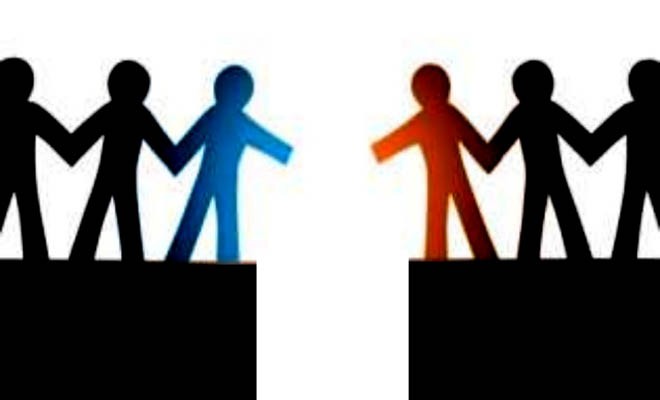
An eyesore for traditionalists who believe things were done better in their days

As one grows older, the redundancy of the word ‘never’ becomes more blatant. ‘Never would I treat my kids this way’ or ‘I will never be in a situation like my parents because I won’t repeat their mistakes.’ As ‘never’ is gradually replaced with ‘fine’ and ‘whatever,’ it marks an end of our internal struggle to prove our predecessors wrong. We become them and they become us.
This gradual fading of never from our lives defines our relationship with the generations before us and those who follow. From disagreeing on every aspect of life to emulating their every step, the teenager is reincarnated into his parents and their parents. This process, it seems, is more complex than we thought.
In a normal household three, and with good genes even four, generations co-habit. That’s roughly three centuries scattered among them. My grandfather travelled between Lahore and Delhi without a passport, my father shares his birthday with Pakistan, I was born just before the first Macintosh computer and my daughter was born under the first black president of the US. Both geographically and eclectically, all of us have little in common, making it nearly impossible for us to share a similar approach towards the world.
In other words, generation gap is the only common thing between generations. From baby boomers to generation Z, or the so-called i-generation this gap of common experience is so wide that the possibility of finding something common is almost impossible. But it is in mainly three aspects of our lives that we find the worst clash of generations -- parenting, finances and moral values.
Read also: In a maze of regret and relief
Our grandparents would hand out a report card marked with a big red F if they saw the current parents and the distance of the rod from the child. For the generation in the first quarter of the previous century, parenting was marked by clear demarcations of boundaries. Children would rarely, if ever, question the decisions taken by their parents, including professional and matrimonial choices.
The generation that followed, our parents, were more open-minded and allowed their children some space, allowed indulgences unlike their parents and believed in a more frank narrative than previously thought important. Parents today feel they owe their children every luxury and believe in accommodating them even at the cost of their own sanity. The question, ‘who raised better kids’, has only one answer, ‘I did’.
Education, the most important aspect of parenting was not seen as an investment in the future, rather it was an obligation that every parent fulfilled according to his social standing. Unlike today, it wasn’t handed out as a branded commodity but a necessity. If we ever ask our parents why they became what they did, they would probably have an emotionless reply. A child today would name five hi-tech well-paid positions he has his eye on, most likely thousands of miles away from Pakistan.
Read also: Millenials under the microscope
The second more contentious issue among generations is finances and how to manage them. For as long as I can remember, savings remained an integral part of money in the form of savings account, prize bonds and defence saving certificates. The idea was be wary of the rainy days. In the same vein, property and land owners emphasised the importance of investing in the land rather than selling it. Spending and expenses were managed on the basis of ‘need’ rather than ‘want’.
Today’s generation viewed this approach as masochistic. ‘Why not spend it if you have it?’ There has been a revolt from that tradition of modesty with a rising middle class and a stronger buying power, as this generation puts want before need by focusing on a running income rather than accumulated wealth. For our generation, the idea of spending less than we actually could was idiotic; for our parents that was the only sensible approach towards money.
Religion becomes the most accessible source of inspiration for defining social norms -- this is wrong because the religion says so or that is acceptable since the scripture allows leniency. Morals and values, the third most definitive aspect of inter-generational clash, becomes a major cause of miscommunication, aggression and verbal violence among generations.
From the general attire to gender assimilation, the right and wrong between generations has never been the same with both sides failing to convince each other of what is socially acceptable and what is not. I see grandparents stoically resign to their grandchildren’s version of a liberal revolution in a country where only a few decades ago people were flogged in public. I also see the co-educated generation y failing to comprehend the senseless burden of immorality their grandparents carry.
Every generation is different because their experiences, like their worlds, are different. As the younger generation involuntarily adopts a new value system, the older ones become disposable. The values of the older generation when rejected by their descendants triggers the disagreement. The latter tries to prove themselves right by adhering to theirs and continuing the familiar pattern.
‘Naya zamana’ has always been an eyesore for traditionalists who believe things were done better in their days. To this, and to everything else, there is no middle ground.